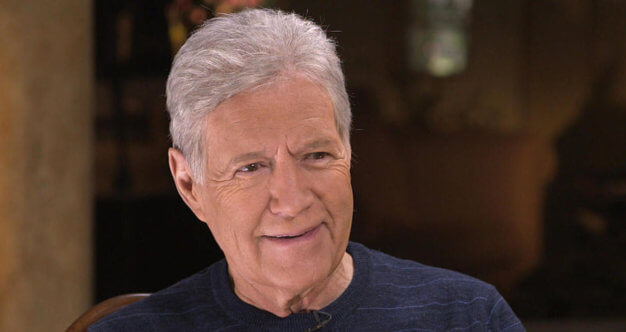Alex Trebek said in an an interview with The National under the Canadian Broadcast Corporation that his Stage 4 pancreatic cancer is a specific mutation that may respond to immunotherapy, if chemotherapy gets rid of some of the cancer first.
Immunotherapy drugs work by activating the body’s own immune system to fight the cancer.
Read MoreThe studies haven't been published yet, but researchers are reporting some early results. Out of 24 patients in the first study, 14 saw their tumor shrink, and two saw their disease stabilize. In the second study, 17 out of 19 patients saw their tumors shrink or stop growing, and one patient had a complete response, meaning there was no remaining evidence of cancer.
"We are making advancements in pancreatic cancer over the last five to ten years, however the advancements have come out slowly. This is because unfortunately many drugs that have been tried when adding to chemotherapy regimens just haven't made a significant impact in improving survival for these patients," says Dr. Allyson Ocean, Medical Oncologist at Weill Cornell Medicine and NewYork-Presbyterian.
It’s still early to know whether immunotherapy will be a widely effective treatment for pancreatic cancer, but there’s much reason for hope. "Up until now, immunotherapy hasn't had a big role," says Dr. Ocean. "Now this study is combining two immunotherapy drugs with frontline standard chemotherapy, and we're seeing response rates that are significantly better than what was published with other chemotherapies alone."
But in this study, the treatment seems to be working for long periods of time (for pancreatic cancer). "The other important takeaway of the trial is that many of the patients that did get a response, the response lasted for a very long time so that's important, too," says Dr. Ocean.
Alex Trebek continued to describe the reason for the positive outlook he has brought to the entire cancer process. “You’ve got a choice. You can be pessimistic, or you can be optimistic, and it’s a lot better to be optimistic because you stand a much better chance of helping to cure yourself.”
He also talked about the depression he faced during other illnesses he’s had in the past. “Last year, as I mentioned at the Emmy Awards show, I had brain surgery for two fairly large blood clots on my brain that were life threatening and they had compressed the brain down quite a bit. And that was frightening. That provided me with a certain amount of depression because I didn’t know what it was.”
But with cancer, he knows he’s not in it alone. “But this for some reason is– hey, so many people get cancer. I’m not alone out there. And I want them to feel that they’re not alone, that they have somebody who can speak out in public on their behalf and raise their hopes because that’s so important.”
Learn more about SurvivorNet's rigorous medical review process.


